Overview
The research interests of the Department of German Literature lie in the culture, society, literature, and art of German-speaking countries, from medieval to modern times. We utilize linguistic theory, literary theory, cultural and social theory, and textual theory to derive new academic findings. Students at the master’s and doctoral level discuss a range of topics in specialized seminars that include text readings, linguistics, medieval cultural studies, media studies, and theater studies in order to acquire the skills required to perform sophisticated, complex research tasks.
The department also provides opportunities for international joint research between Japan and German-speaking countries, subsidized by grants-in-aid for scientific research. We have presented and authored many new findings in literature, media, film, culture, and theater theory. Graduate students are also given opportunities to present and publish joint research on these topics. Many master’s graduates establish their careers in mass media—publishing and newspapers—as well as at universities and local public organizations. Many of our PhDs go onto academic and research careers at universities across Japan.
Faculty
Name/Position
Department/Specialty/Research Interest/Publication
-
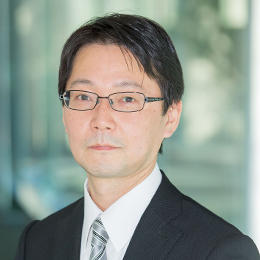
German Literature
Modern German Literature and Literary Theory. Media StudiesI do research on German literature and German theoretical thinking from the viewpoint of the media history. Media are a historical a priori for writing and thinking. Media history from printing by way of analog media to digital media changed the relationship of time and space immensely. I try to observe and describe the influences media history has exerted on literary and theoretical discourses.
Publication- Autobiographie und Photographie nach 1900: Proust, Benjamin, Brinkmann, Barthes, Sebald. Bielefeld (transcript), 2011.
- Christoph Ransmayrs Arbeit am Zeugen – Jean Améry und der Roman ""Morbus Kitahara"". In: Beiträge zur österreichischen Literatur. Jg. 33 (2017), S. 12–23.
- Recht und Literatur in Benjamins Essay ”Franz Kafka”. In: Neue Beiträge zur Germanistik. Bd.16, Heft 1. 2017, S, 47–61.
- Metamorphosis as Origin—Koji Yamamura’s Short Animation ”Franz Kafka’s A Country Doctor”. In: Arts(MDPI) 8 ( 2 ) 4. 2019. https://www.mdpi.com/2076-0752/8/2/54
- 「法のメディア論−コルネリア・フィスマンとともにゲーテ『若きヴェルターの悩み』を読む」,縄田雄二(編)『モノと媒体の人文学』岩波書店,2022年,192-219頁.
-
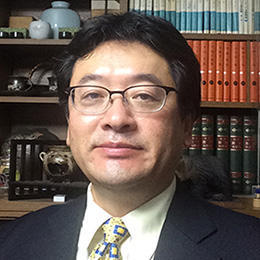
German Literature
Goethe's Way of Science, History of Science, History of Sports, Popular Music Studies, and Monster FilmsGerman poet Jahann Wolfgang von Goethe was also an excellent nature seeker. His literature was invented from his view of nature, and he kept sounding the alarm to modern civilization from his point of view, into which he incorporated the natural sciences. I’m working with an interdisciplinary study group, by which Goethe's way of thinking suggests its starting point. The purpose of my study is, in cooperation with researchers in various areas, to kindle an interdisciplinary discussion for modern civilization from multiple angles, and to explore the teaching of civilization theory to better manage the future of human society.
Publication- 『サッカーのエスノグラフィーへ』(共編著、社会評論社 2002)
- ゲーテ『ファウスト』(訳著、作品社 2022)
- 『西洋教育思想史』(共著、慶應義塾大学出版会 2016)
- 『Pazifikismus.Poetiken des stillen Ozeans』(共編著、Könighausen 2018 )
- 『サッカー審判員フェルティヒ氏の嘆き』(翻訳、三修社、2012)
-
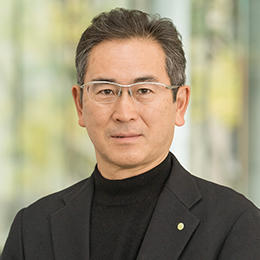
German Literature
German Linguistics, Language TheoryI conduct linguistic research on the German language.
All natural languages share an amazing universality in that they use mechanisms which combine dozens of sounds to represent infinite things. This universality possess structural aspects as well as functionally set properties: humans are naturally endowed with kernels of language, but for what purpose? I am particularly interested in the latter, the functional aspects of language, and try to make new discoveries through comparative linguistics of German, Japanese, and other languages.
Publication- Grammatische Funktionen aus Sicht der japanischen und deutschen Germanistik. (共編著,Helmut Buske,2017)
- ノモスとしての言語 (シリーズ ドイツ語が拓く地平 3). (共編著,ひつじ書房,2022)
- 講座 ドイツ語学. 第一巻. ドイツ語のシンタクス. (共著,ひつじ書房,2014)
- Deixis und Anaphorik: Referenzstrategien in Text, Satz und Wort. Linguistik – Impulse und Tendenzen 42. (Walter de Gruyter,2011)
- The ”passive“ voice in Japanese and German: argument reduction and argument extension. in: Linguistics 44-2. 319-342. (共著,Mouton de Gruyter,2006)
-
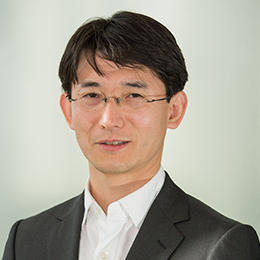
German Literature
Theatre Studies/Research on German TheatreThe focus of my research is analyzing the European, German, and Japanese theatre with the methodology of Theatre Studies, which has been developed with its own discipline in the last two decades in Europe/Germany. My research in recent years has been reviewing the theatrical aspects of presence and absence, the tragedy theory, the relationship between theatre and democracy, as well as the transcultural elements between theatre and politics. The elements of theatre, such as gesture, body, playfulness, and direction, are related to the “theatricality” in our life, especially in a media society in which self-direction, face-to-face communication (as the binary opposition of media), eventuality, and the spectatorship of events take on a crucial role. This kind of theatricality, which has been discussed not only in theatre studies but also in philosophy, political science, and sociology, is also a key topic of my long-term research.
Publication- Theater in Japan(共編著、Theater der Zeit, 2009)
- 『ドラマトゥルクーー舞台芸術を進化/深化させる者』(三元社、2010)
- 『在と不在のパラドックス――日欧の現代演劇論』(三元社、2016)
- 『文化を問い直すーー舞台芸術の視座から』(共編著、彩流社、2021)
- 『演劇と民主主義』(共編著、三元社、2025)
-
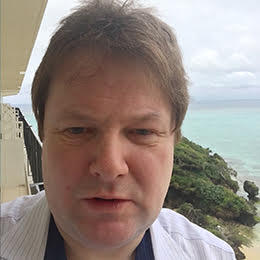
German Literature
Modern German Literature and Culture StudiesLiterature and culture research develop in tandem with one another. I take this position and apply the social theories of cultural studies and Bourdieu to observe modern and contemporary German literature, with a focus on the relationships between culture, society, and media. I have a particular interest in the pivotal years of 1945 and 1989.
Publication- Zwischen Erinnerung und Fremdheit. Entwicklungen in der deutschen und polnischen Literatur nach 1989. (Hrg.)Göttingen 2015.
- Alfred Andersch revisited. Werkbiographische Studien im Zeichen der Sebald-Debatte. (Hrg.)Berlin 2011.
- Mediale Erregungen? Autonomie und Aufmerksamkeit im Literatur-und Kulturbetrieb der Gegenwart. (Hrg.) Tübingen 2009.
- Text und Feld. Bourdieu in der literaturwissenschaftlichen Praxis. (Hrg.) Tübingen 2005.
- Bruderkämpfe. Zum Streit um den intellektuellen Habitus in den Fällen Heinrich Heine, Heinrich Mann und Hans Magnus Enzensberger.Heidelberg 2000, zugl. Diss., Berlin 1998.


